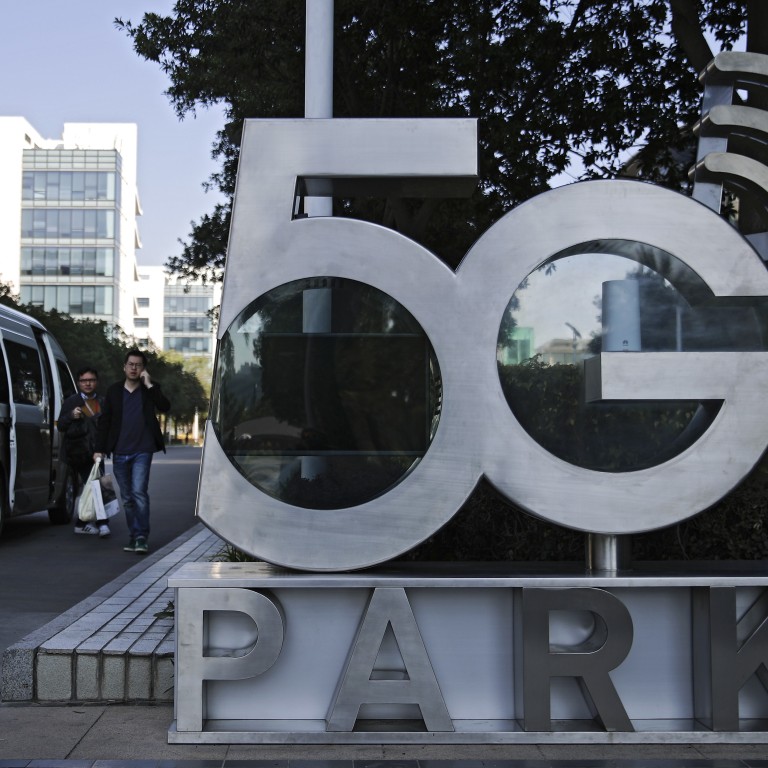
Huawei’s chairman posts bullish new year address, citing record revenue growth in face of difficulties
- Huawei expects a record 21 per cent jump in revenue for 2018 to US$108.5 billion
- Rotating chairman Guo references Cicero - ‘The greater the difficulty, the greater the glory’ describing an ‘extremely uneasy’ 2018
Huawei Technologies, the world’s largest telecommunications equipment vendor, expects to record a bullish 21 per cent jump in revenue for 2018 to US$108.5 billion, despite a series of setbacks for its global 5G business as its gear comes under closer scrutiny from the US and western governments over security concerns.
Apart from the record revenue growth, in an upbeat new year address posted on his WeChat account, Huawei’s rotating chairman Guo Ping also highlighted that the company has signed a total of 26 commercial 5G contracts with leading global carriers to date, including the delivery of 10,000 5G base stations, and record smartphone shipments for 2018 in excess of 200 million units.
In a reference to the Roman philosopher Marcus Tullius Cicero, Guo opened his new address with the quote “The greater the difficulty, the greater the glory,” before going on to describe an “extremely uneasy” 2018 for the Chinese technology giant, which has become embroiled in a wider US-China trade and technology spat.
Although Huawei has become one of the most popular consumer smartphone brands in the world, selling more phones than Apple globally, western governments have sounded the alarm over Huawei’s core telecommunications business, due to US-led concerns that its equipment contains flaws and “back doors” that enable spying by the Chinese government.
Huawei has denied links with the Chinese military and that its network gear poses a security threat, saying it is a private company that is part-owned by its employees. Beijing meanwhile regards moves to block Huawei’s next-generation network equipment as an attempt by the west to restrain the growth of Chinese hi-tech companies.
Reuters reported on Thursday that US President Donald Trump is considering an executive order to declare a national emergency that would allow him to bar US companies from using network gear made by Huawei and ZTE Corp, China’s second-largest telecoms equipment supplier, citing three sources familiar with the situation.
This planned move follows the passage of a defence policy bill in August that barred the US government itself from using Huawei and ZTE equipment.
Last month, New Zealand barred China’s Huawei on national-security grounds from supplying equipment for next-generation mobile networks and in August, Australia banned Huawei from supplying 5G equipment, citing a security threat to its infrastructure.
Referring to the company’s financial performance, Guo said the “operating results are the most genuine recognition of our customers around the world and the most powerful response to questioning and exclusion.” Guo went on to thank Huawei’s customers, partners and the community for their trust and support, in his new year address.
“No matter how the situation changes, our procurement policy for suppliers will not change, especially for US suppliers, as (we will) unswervingly cooperate for a win-win situation,” Guo said.
Guo did not directly mention the recent arrest in Canada of chief financial officer Meng Wanzhou at the request of the US, who have accused her of fraudulently representing Huawei to get around US sanctions on Iran.
However, he closed his address with a cryptic sentence from an ancient Chinese poet translating into English roughly as “A thousand sails pass by the shipwreck”, indicating that new hope always overcomes past difficulties and tragedies.

